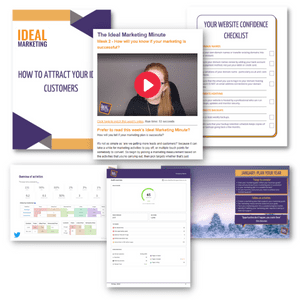WHEN TIMES are good, the phones are ringing and the e-mails are flying in filled with enquiries – who needs to ask where a new customer heard about you? Well actually you do. It is just as important to enquire during the good times as the difficult times.
When I speak to potential new clients, one of the questions I ask is how they generate enquiries at the moment? While a percentage of people will usually explain that they get recommended by their existing customers (which is a good thing, of course) it is surprising how few people know which elements of their current advertising and marketing mix work for them. They talk about adverts in local papers, in local free sheets, sponsoring of events, perhaps local radio advertising or Yellow Pages adverts. However they are seldom able to point to a particular campaign as a success.
Given that most of the companies I speak to are already reasonably successful, it would be a fair presumption to make that something they are currently doing in advertising and marketing already is working for them. However, most companies don’t know what advertising works and what advertising does not.
The simplest way of getting at least a good indication is setting in place a very strict rule to ask everybody who enquires how they found out about your business.
Not everyone will tell you, and perhaps not everyone will know, but it will give you a good indication of what may be working and, equally important, what may not be working for you.
If you advertise in a variety of places at one time, the results may not be 100 per cent certain, but it does give you a strong indication about which advertising message the prospect saw that persuaded them to come to you. What I mean by this is that if you have a poster displayed in the town, are running a radio campaign, have recently leafleted an area, and also ran a newspaper advert, your name and message is hopefully being seen by people several times. In reality it’s the combination of these messages that combine to make people contact you. It is their increased familiarity with what you do that has made them take action. If asked, they may say they found you through Google, but it was the various messages in various media that made them search out your website before buying online.
However, by asking each and every time somebody makes their first enquiry where they heard about you, you can build up at least a reasonable picture which gives a good idea of what advertising is working for you and what is not.
Why does this matter? It matters for two very important reasons. If you are spending your money equally with different publications, yet one publication consistently brings in twice as many enquiries per pound spent as the other publications, does it make sense to spend more money with the successful publication and less money with the unsuccessful publication? The result of following this strategy should be even more enquiries for the same amount of money spent. In other words, it means that you’re able to balance your marketing so that the areas which generate the most enquiries get more money spent on them while those that generate fewer enquiries either get less money spent on them or you stop spending on them altogether.
The second important reason it matters is if you decide you need to cut your marketing spend. In a general downturn, or perhaps just when you have some cash flow issues, you may decide to reduce the amount of money spent on marketing. If you don’t know which of your marketing outlays is generating the enquiries, how would you know which areas to cut? By monitoring what you’re currently doing, you take the guesswork out of the picture. The problem with guessing is that we can easily allow false perceptions to get in the way. Your personal preference for a particular type of advertising or a particular publication can mask the true picture. By cutting a very successful advertising campaign without realising it, we can seriously affect new business opportunities coming our way.
The simplest way around this is to devise a form for anybody answering the phone to act as a prompt to asking a few simple questions about how you customer found out about the company. Filled in, those forms become your raw survey data. That way you can start toward success in your marketing by spending more on what works and less on what doesn’t.
For marketing advice specific to your business, get in touch and speak with a marketing specialist on 01858 374 170 or email info@idealmarketingcompany.com

MD & Head of Digital Marketing
Jessica has worked in digital marketing for over 10 years and has watched it evolve from an experimental marketing option to an essential tool for most businesses. She is driven to help businesses achieve their objectives using the best digital marketing resources available and recognises that each business is different. Jessica devours the latest news about digital marketing and is constantly learning in order to stay ahead of the trends for clients.







